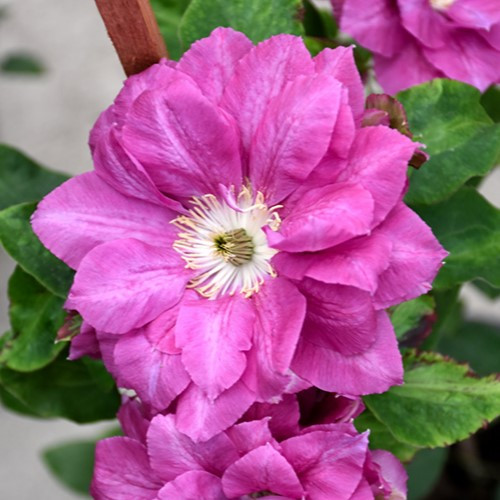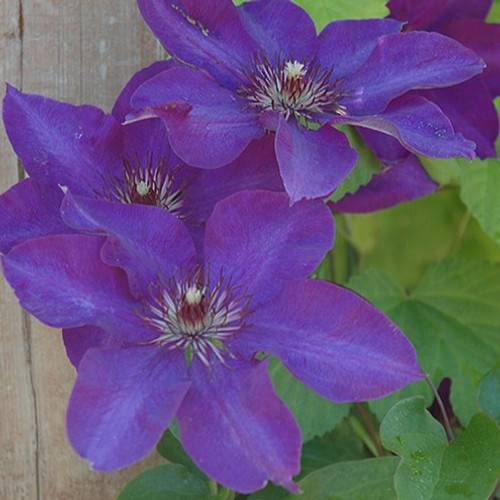| Clematis 'Red Star' | USDA Zone: 4-8 |
Red Star Clematis features showy red star-shaped flowers with buttery yellow eyes at the ends of the branches from late spring to early fall. It has green deciduous foliage. The compound leaves do not develop any appreciable fall colour.
This standout variety is very free flowering with large velvety-red double blooms; perfect for garden walls, patios and containers; a great conversation piece
Red Star Clematis is recommended for the following landscape applications;
- Accent
- Hedges/Screening
- General Garden Use
- Container Planting
Bloom Time: Spring, Summer, Fall
Long-Blooming, Reblooming
Beneficial for Pollinators
Attracts Hummingbirds
Deer Resistant
Rabbit Resistant
Common Name: Clematis
|
Key Feature
|
Light Needs | Landscape Uses |
 |
 |
|
|
|
|
| More About Red Star Clematis |
| Height: 7-8 ft |
Spread: 2-3 ft |
Flower Colour: Pink / Red Shades |
|
Clematis are prized for their incredible flowers, most as large as your hand. Clematis will train onto trellises, fences or arch over doorways. Stunning when used alone or when several colors are mixed. This woody vine should only be grown in full sunlight. Provide full sun for the foliage; and partial shade at the root zone. In warmer climates, Clematis do best with a shaded or partially shaded area. It does best in average to evenly moist conditions, but will not tolerate standing water. It is somewhat tolerant of urban pollution. Consider applying a thick mulch around the root zone in both summer and winter to conserve soil moisture and protect it in exposed locations. Pruning Group 2 - In this group all first flowering comes from last season's ripening stems. In early Spring watch for swelling leaf buds beginning to show. Cut all dead material off above these swelling buds. Be sure all growth is tied to the trellis, etc. at this time. Do not tie too tightly, so growth will not be hampered or cracked. If intertwining Clematis, pruning will be easier if you select varieties with the same pruning type. Note that when grown in a container, it may not perform exactly as indicated on the tag - this is to be expected. Also note that when growing plants in outdoor containers and baskets, they may require more frequent waterings than they would in the yard or garden. Be aware that in our climate, most plants cannot be expected to survive the winter if left in containers outdoors, and this plant is no exception. NOTE: Some flowers and plants may be harmful or poisonous to people or pets if touched or ingested. If you require more information before placing an order, please let us know in advance. |










